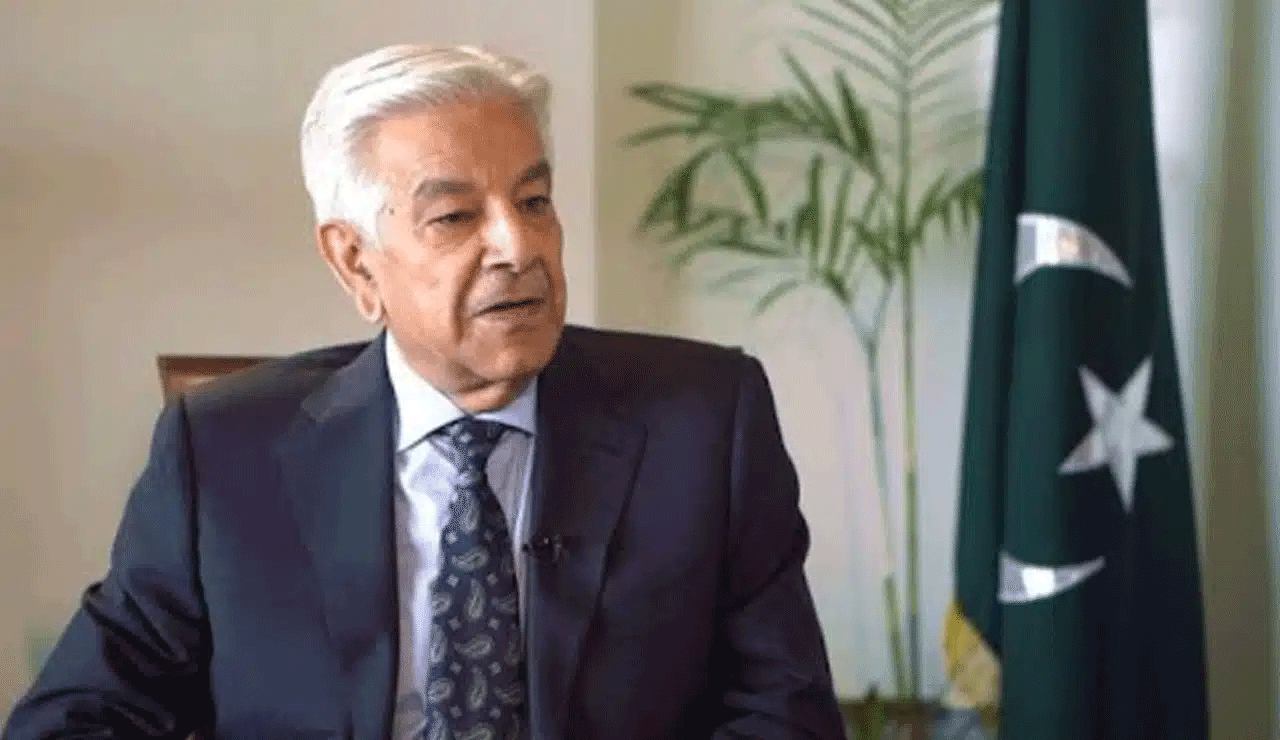Pakistan’s Defence Minister Khawaja Asif Sparks Controversy Over Indian Drone Intrusion
Pakistan’s Defence Minister Khawaja Asif has ignited a new controversy with his recent remarks regarding the intrusion of Indian drones into Pakistani airspace.

Islamabad: Pakistan’s Defence Minister Khawaja Asif has ignited a new controversy with his recent remarks regarding the intrusion of Indian drones into Pakistani airspace. Speaking in the National Assembly, Asif claimed that Pakistan consciously chose not to intercept the drones in order to protect its strategic positions. His comments have drawn criticism both domestically within Pakistan and internationally, particularly from India.
Table of Contents
Khawaja Asif’s Justification on Indian Drone Intrusion
Asif stated that Pakistan’s military did not respond to the intrusion by Indian drones because disclosing the country’s strategic locations would have been a security risk. This justification comes after India’s counterattack on Thursday, which targeted Air Defence Radars and systems at multiple locations in Pakistan, including Lahore. According to a statement from India’s Ministry of Defence, the response was proportional, with an Air Defence system in Lahore neutralised in retaliation.
Controversial Remarks on Madrassa Students as ‘Second Line of Defence’
Also Read: Revanth Reddy’s Comments on Telangana’s Finances Cause Disagreement in Congress
In addition to the drone controversy, Khawaja Asif made another provocative statement during his speech, referring to Madrassas and Madrassa students as “our second line of defence.” He added, “When the time comes, they will be used as needed.” This comment has raised concerns internationally about the role of religious seminaries in Pakistan’s military policy, especially considering the ongoing issues with extremism and radicalisation in the region.
Pakistan Claims Support from Allies Amid Rising Tensions
Asif also addressed the international community’s stance on the ongoing India-Pakistan tensions, asserting that the majority of the world remains neutral. He emphasized that Pakistan’s allies, particularly in the Gulf region and China, are “clearly with Pakistan.” Asif pointed out that daily communication occurs with Pakistan’s allies, and recent discussions with Iran’s Foreign Minister reflect this coordination.
“We are in daily contact with our brothers in the Gulf. Iran’s Foreign Minister was here recently, and we had day-long discussions. We are also in regular touch with China,” Asif remarked.
India’s Successful Counter-Drone Operations
Meanwhile, tensions along the India-Pakistan border continue to escalate. India’s Army successfully thwarted a large-scale drone attack launched by Pakistan, neutralising over 50 unmanned aerial vehicles (UAVs). The Indian Army Air Defence units employed a mix of advanced technologies, including L-70 anti-aircraft guns, Zu-23mm twin-barrel systems, and Soviet-origin Schilka platforms, to counter the drone threat in various locations, including Udhampur, Samba, Jammu, Akhnoor, Nagrota, and Pathankot.
This successful operation highlights India’s growing capabilities in electronic warfare and its rapid response to drone threats, marking a new phase of conflict between the two countries — advanced drone warfare.
